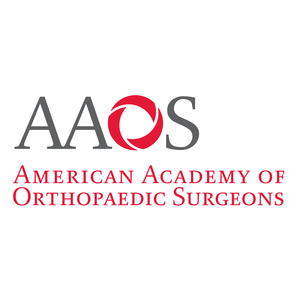
Patients give high marks to prepping for surgery online
Web-based education prior to knee arthroscopy improves patients' understanding and enhances their experience
ROSEMONT, Ill., June 19, 2015 /PRNewswire-USNewswire/ -- First-time surgery can be concerning to any patient. Knee surgery—even arthroscopic surgery to treat a torn meniscus—can require significant preparation and rehabilitation. According to a new study appearing in the June 17 issue of The Journal of Bone & Joint Surgery (JBJS), a Web-based tutorial can not only increase a patient's understanding of the surgery but also provide a better experience.
Meniscal tears are among the most common knee injuries in athletes; however, anyone at any age can tear a meniscus. Although various non-surgical methods can be used to treat this injury, an orthopaedic surgeon may suggest arthroscopic knee surgery if symptoms persist despite conservative treatment. According to the American Orthopaedic Society for Sports Medicine, more than 4 million knee arthroscopies are performed worldwide each year.
"The goal of our study was to evaluate the effect of a multimedia patient education tool on the surgical experience of patients undergoing first-time knee arthroscopy," said lead author and orthopaedic sports surgeon Bob Yin, MD. "We found that when used as an adjunct to the traditional patient-surgeon interaction, the Web-based tutorial was an effective tool for enhancing the patient's perioperative experience."
In this study, researchers randomized patients into two groups—a control group that received standard preoperative counseling and an intervention group that completed a 20-minute Web-based multimedia tutorial in addition to standard counseling. Of the 64 patients enrolled in the study, 55 were included in the final data analysis. The control group (29 patients) and the intervention group (26 patients) were similar in terms of age and level of education. Patients were asked to rate their level of knowledge and satisfaction, using a 10-point scale, with 10 being most informed, at various points.
- Preoperatively, when compared with the control group, the intervention group felt significantly more informed about and prepared for the surgery and understood the risks, benefits, and alternatives of the surgery (mean score, 9.1 versus 6.0).
- On the day of the surgery, the intervention group patients continued to feel more informed about the surgery than the control group (mean score, 9.0 versus 8.3) and were more satisfied with the preoperative information and tutorial that they had received (mean score, 8.7 versus 7.7). There were no significant differences between groups in terms of preparedness; anxiety; or understanding of the risks, benefits, and alternatives.
- Postoperatively, knowledge assessment showed that patients who had completed the Web-based tutorial were significantly more likely to correctly identify which meniscus had been operated on (answered correctly by 92 percent versus 69 percent). They were also more likely to know whether a chondroplasty, a surgical procedure that reshapes damaged cartilage, had been performed (answered correctly by 89 percent versus 41 percent).
"Overall, patients who received the tutorial had higher satisfaction scores and an enhanced surgical experience," said Dr. Yin. "Having adequate knowledge is critical in the shared decision-making process because it empowers patients to make an informed decision about their care."
Disclosure: One or more of the authors received payments or services, either directory or indirectly (i.e., via his or her institution), from a third party in support of an aspect of this work. In addition, one or more of the authors, or his or her institution, has had a financial relationship, in the 36 months prior to submission of this work, with an entity in the biomedical area that could be perceived to influence or have the potential to influence what is written in this work. No author has had any other relationships, or has engaged in any other activities, that could be perceived to influence or have the potential to influence what is written in this work. The complete Disclosures of Potential Conflicts of Interest submitted by authors are always provided with the online version of this article.
About the JBJS
American Academy of Orthopaedic Surgeons (AAOS) on Facebook, Twitter and Google+
More information about the AAOS
SOURCE American Academy of Orthopaedic Surgeons






Share this article